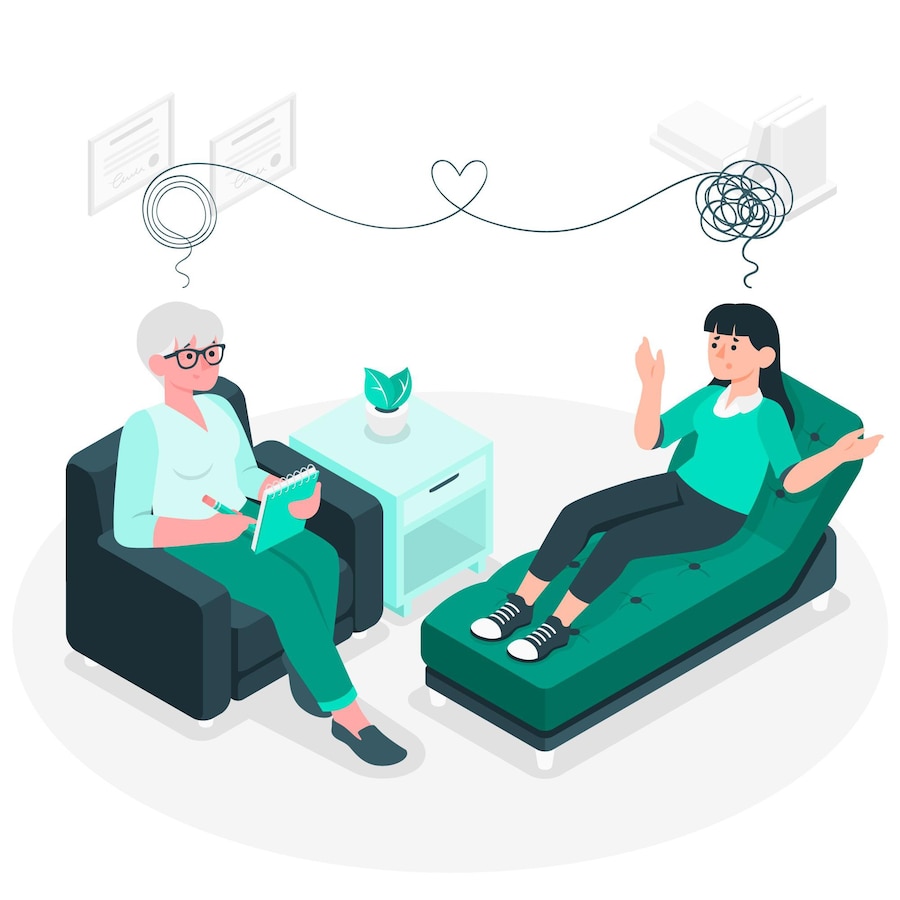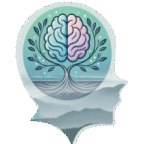Individual Therapy: Personalized Mental Health Care
Are you feeling overwhelmed, stuck, or simply curious about improving your mental well-being? Individual therapy might be the answer you’re looking for. This personalized approach to mental health care has helped millions of people navigate life’s challenges, from anxiety and depression to personal growth and addiction recovery.

What is Individual Therapy?
Individual therapy is a one-on-one process where you work with a trained professional—often called an individual therapist or personal therapist—to address your unique emotional, mental, or behavioral concerns. Also known as individual psychotherapy or individual counseling, it’s a confidential space tailored entirely to you. Unlike group settings, the focus here is on your personal story, making it a deeply individualized therapy experience.
So, what is individual therapy exactly? It’s a collaborative effort between you and your therapist to explore your thoughts, feelings, and actions. The goal? To help you understand yourself better, overcome obstacles, and build a healthier, happier life. Whether you’re dealing with a specific issue or seeking self-discovery, this process adapts to your needs, offering individual care that feels personal and empowering.
Building rapport—that trusting connection with your therapist—is key. It creates a safe environment where you can be honest and vulnerable, paving the way for real change.
What is Individual Therapy?
ndividual therapy is a one-on-one process where you work with a trained professional—often called an individual therapist or personal therapist—to address your unique emotional, mental, or behavioral concerns. Also known as individual psychotherapy or individual counseling, it’s a confidential space tailored entirely to you. Unlike group settings, the focus here is on your personal story, making it a deeply individualized therapy experience.
So, what is individual therapy exactly? It’s a collaborative effort between you and your therapist to explore your thoughts, feelings, and actions. The goal? To help you understand yourself better, overcome obstacles, and build a healthier, happier life. Whether you’re dealing with a specific issue or seeking self-discovery, this process adapts to your needs, offering individual care that feels personal and empowering.
Building rapport—that trusting connection with your therapist—is key. It creates a safe environment where you can be honest and vulnerable, paving the way for real change.
Why Choose Individual Therapy? The Benefits Explained
The benefits of individual therapy are vast, making it a go-to option for people from all walks of life. Here’s why it stands out:
Tailored Support from Individual Counselors
With individual therapy sessions, you get undivided attention from your therapist. This isn’t a generic program—it’s individualized therapy designed just for you. Your individual counselor listens to your story and crafts a plan that fits your specific goals, whether it’s managing stress, healing from trauma, or boosting self-esteem.
Key Advantages of Individual Therapy
What sets this apart? Here are some advantages of individual therapy:
- Privacy: Your sessions are completely confidential, giving you freedom to speak openly.
- Flexibility: The process evolves with you, adjusting to new challenges or priorities.
- Depth: One-on-one time allows for a deeper dive into your personal experiences.
These perks make personal therapy a powerful tool for lasting change.
Benefits of Individual Therapy for Addiction
Struggling with addiction? Individual therapy programs shine here. They help you uncover the root causes of substance use, develop coping skills, and create a roadmap to recovery. The benefits of individual therapy for addiction include personalized strategies that address your triggers and build resilience, step by step.
Emotional Connection and Growth
The relationship with your individual therapist fosters rapport, which is essential for progress. This bond encourages self-reflection and growth, helping you feel understood and supported as you work through life’s ups and downs.
Types of Individual Therapy: Finding the Right Fit
Not all therapy is the same. There are various types of individual therapy, each with a unique approach to help you thrive. Your therapist might recommend one or blend several based on your needs.
Individual Cognitive Behavioral Therapy (CBT)
Ever heard of CBT? It’s a popular type of individual psychotherapy that focuses on changing negative thought patterns. By rethinking how you perceive situations, you can shift your emotions and behaviors. It’s especially effective for anxiety, depression, and stress.
Psychodynamic Individual Psychotherapy
Wondering what is individual psychotherapy in a psychodynamic sense? This method digs into your past and unconscious mind to uncover how they shape your present. It’s ideal for those wanting to explore deep-seated emotions or recurring patterns.
Humanistic Personal Therapy
This approach is all about you—your strengths, your potential. Humanistic personal therapy encourages self-discovery and empowerment, helping you tap into what makes you, you. It’s perfect for personal growth and self-acceptance.
More Individual Therapy Options
Other individual therapy programs include:
- Dialectical Behavior Therapy (DBT): Great for managing intense emotions and improving relationships.
- Acceptance and Commitment Therapy (ACT): Teaches you to embrace feelings while taking positive action.
- Integrative Therapy: Combines techniques for a fully customized experience.
Your individual therapist will guide you to the best fit during your individual counseling sessions.
What Happens in Individual Therapy Sessions?
Curious about what is individual therapy like in practice? Let’s break it down so you know what to expect.
The Flow of a Therapy Session
A typical individual therapy session lasts around 50 minutes. It’s a conversation—sometimes structured, sometimes free-flowing—where you and your therapist explore what’s on your mind. This therapy session definition might include discussing recent events, reflecting on emotions, or practicing new skills.
Your Therapist’s Role
Your personal therapist isn’t there to tell you what to do. Instead, they guide you, offering insights and tools while you take the lead. It’s a partnership, especially in those early individual counseling sessions where you set goals together.
Getting Started: The First Psychotherapy Session
New to therapy? The first psychotherapy session is about getting comfortable. Your therapist will ask about your background, challenges, and hopes. This assessment helps shape your individual therapy program, ensuring every step feels relevant to you.
Progress Over Time
Each individual therapy session builds on the last. Whether you’re tackling a specific issue or exploring broader themes, these moments of reflection add up to meaningful growth.
Individual Therapy for Your Unique Needs
One of the advantages of individual therapy is its versatility. It can address almost any concern, from mental health struggles to personal aspirations.
Anxiety and Depression
Feeling anxious or down? Individual psychotherapy offers proven techniques—like CBT—to ease symptoms. You’ll learn to quiet racing thoughts or lift the weight of sadness, one session at a time.
Trauma and PTSD
For those healing from trauma, individual care provides a gentle space to process pain. Therapies like EMDR (Eye Movement Desensitization and Reprocessing) can lessen the hold of past events, helping you reclaim your peace.
Addiction Recovery
The benefits of individual therapy for addiction are profound. It’s a chance to understand why you turn to substances, build healthier habits, and stay committed to sobriety with your therapist’s support.
Relationships and Self-Improvement
Struggling with a partner or seeking self-awareness? Individual counselling equips you with tools to communicate better, set boundaries, or simply grow into your best self.
How to Find the Right Individual Therapist
Finding the perfect individual counselor can feel daunting, but it’s worth the effort. Here’s how to start:
Picking the Right Fit
Look for a licensed individual therapist with expertise in your area of need—whether it’s anxiety, addiction, or personal growth. Online directories, word of mouth, or centers like Mirmont Outpatient Center or The Family Institute Northwestern are great places to explore.
What to Look For
Check credentials—think LPC, LCSW, or PhD—and experience. A good personal therapist should feel approachable and aligned with your goals. Places like Greene Psychology Group often list therapist specialties to help you decide.
Therapy Centers and Programs
Outpatient hubs like Mirmont Outpatient Center offer structured individual therapy programs. Similarly, The Family Institute Northwestern provides expert-led sessions, blending research and care for top-notch support.
Your First Chat
In that initial psychotherapy session, ask questions: “What’s your approach?” “How will we track progress?” This ensures your individual holding—your therapeutic space—feels right.
Frequently Asked Questions About Individual Therapy
Got questions? Here are clear answers to common curiosities:
- What is individual therapy?
It’s a one-on-one process where a therapist helps you tackle personal challenges or goals through tailored support. - What is individual psychotherapy?
Another term for individual therapy, it’s a professional method to explore emotions and behaviors with a trained expert. - What is psychotherapy therapy?
Simply put, it’s therapy involving psychological techniques to improve mental health—often synonymous with individual psychotherapy. - Why is individualized therapy important?
It ensures your treatment fits your life, making it more effective and meaningful than a generic approach. - What are individual therapy sessions like?
They’re 50-minute conversations with your therapist, focused on your needs—think reflection, problem-solving, and growth.
Final Thoughts: Your Path to Well-Being
Individual therapy isn’t just a treatment—it’s a journey. With the help of individual counselors, you can face life’s challenges, heal old wounds, and uncover your strengths. The benefits of individual therapy—from its personal touch to its proven results—make it a game-changer for mental health and beyond.
Ready to begin? Reach out to a personal therapist or check out options at places like Mirmont Outpatient Center, Greene Psychology Group, or The Family Institute Northwestern. Your story matters, and individual therapy sessions are here to help you write the next chapter.
